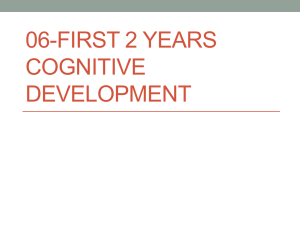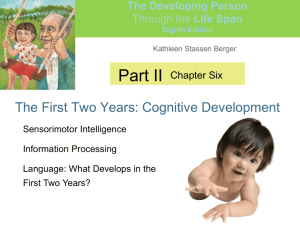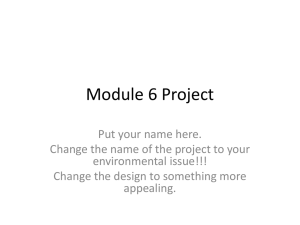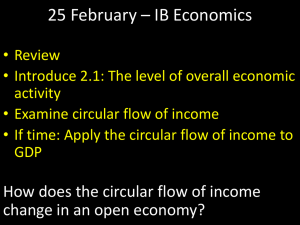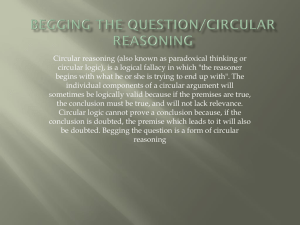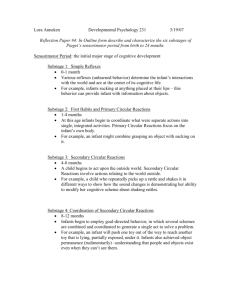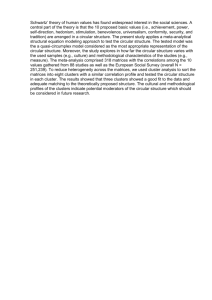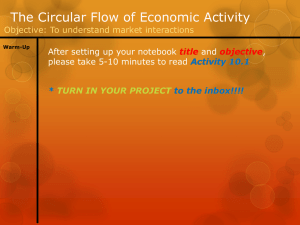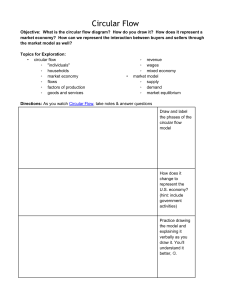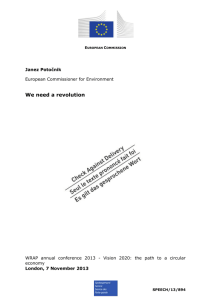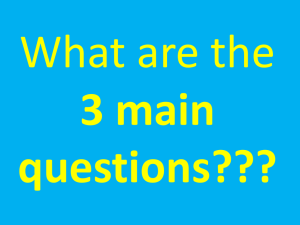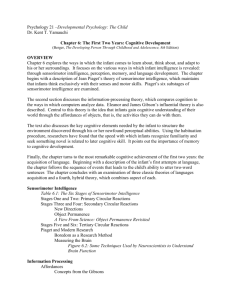Sensorimotor Stage of Development
advertisement
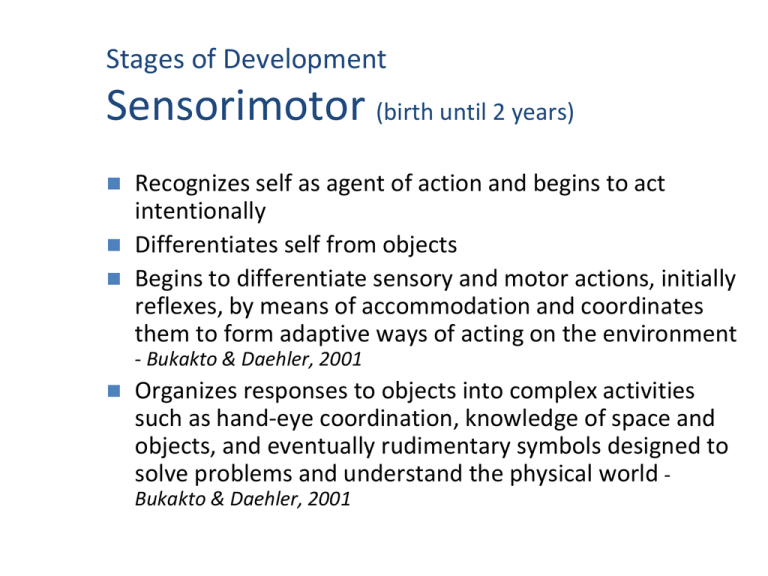
Stages of Development Sensorimotor (birth until 2 years) Recognizes self as agent of action and begins to act intentionally Differentiates self from objects Begins to differentiate sensory and motor actions, initially reflexes, by means of accommodation and coordinates them to form adaptive ways of acting on the environment - Bukakto & Daehler, 2001 Organizes responses to objects into complex activities such as hand-eye coordination, knowledge of space and objects, and eventually rudimentary symbols designed to solve problems and understand the physical world Bukakto & Daehler, 2001 Stages of Development Sensorimotor (birth until 2 years) •The Sensorimotor Stage is divided into six subcategories: 1. Simple reflexes: From birth to one month old. At this time infants use reflexes such as rooting and sucking. 2. First habits and primary circular reactions: From one month to four months old. During this time infants learn to coordinate sensation and two types of schema (habit and circular reactions). A primary circular reaction is when the infant tries to reproduce an event that happened by accident (ex.: sucking thumb). 3. Secondary circular reactions: From four to eight months old. At this time they become aware of things beyond their own body; they are more object-oriented. At this time they might accidentally shake a rattle and continue to do it for sake of satisfaction. 4. Coordination of secondary circular reactions: From eight months to twelve months old. During this stage they can do things intentionally. They can now combine and recombine schemata and try to reach a goal (ex.: use a stick to reach something). They also understand object permanence at this stage. That is, they understand that objects continue to exist even when they can't see them. 5. Tertiary circular reactions, novelty, and curiosity: From twelve months old to eighteen months old. During this stage infants explore new possibilities of objects; they try different things to get different results. 6. Coordination of tertiary circular reactions: From eighteen to twenty-four months. Internalization of behaviors and development of mental symbols.
